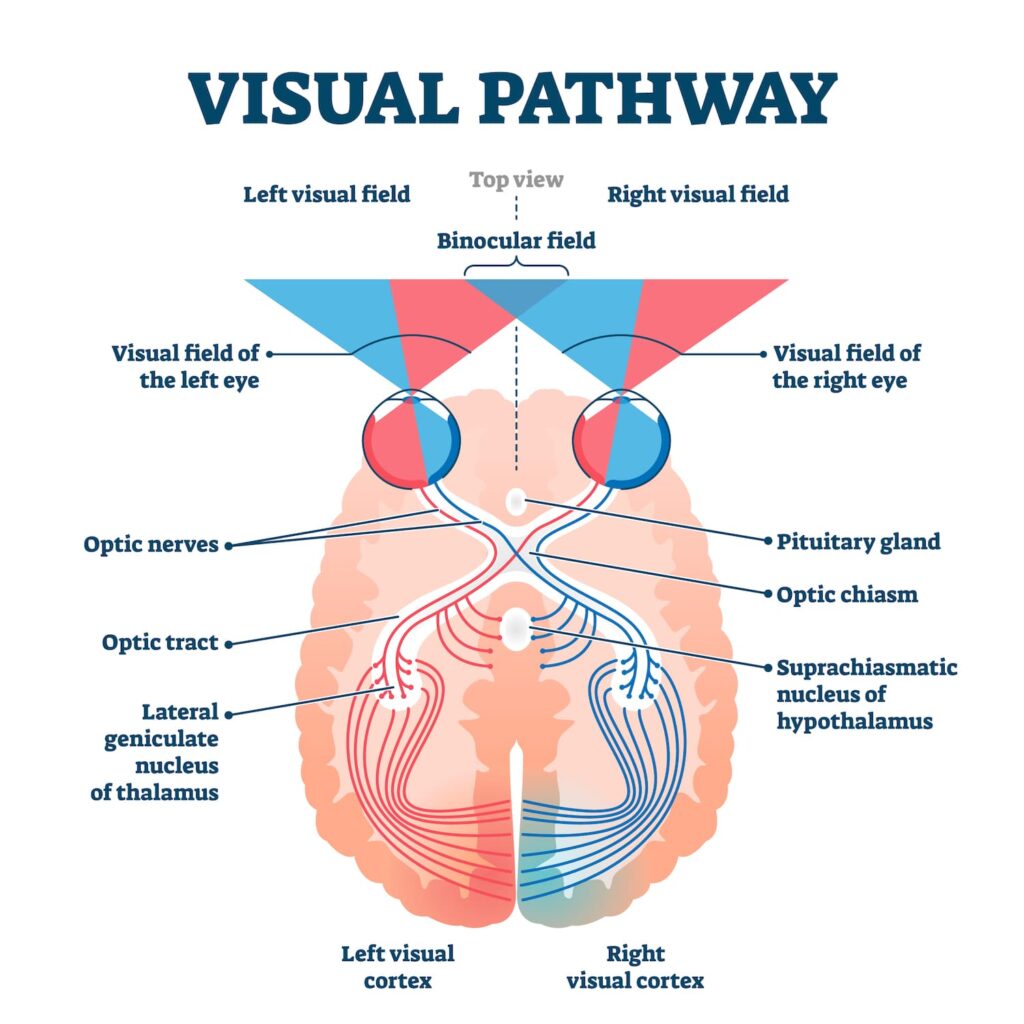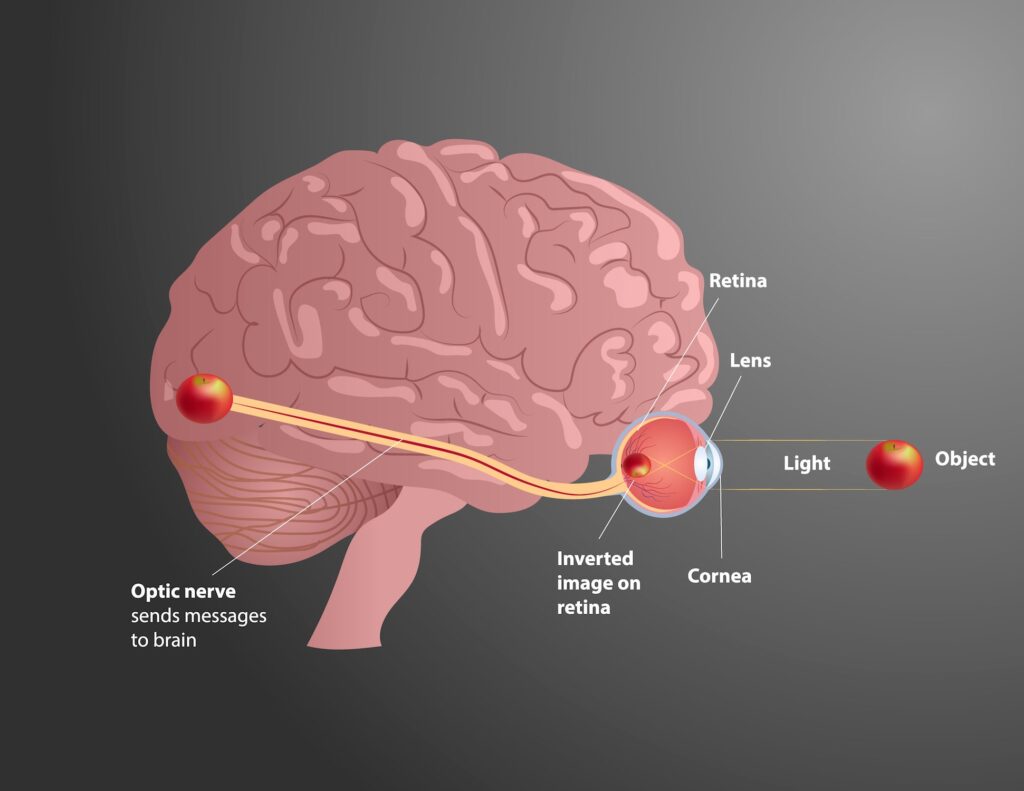Neurological eye disorders, also known as neuro-visual disorders, are a group of disorders that affect the nerves both in and around the eye.
The eye comprises an intricate system of tissues and nerves that communicate with each other, passing from the brain and optic nerve to the eye. Problems affecting any part of this pathway can lead to several manifestations that can affect the vision. Prompt diagnosis and treatment are often vital in helping to preserve vision and prevent further progression.

Yes, certainly, as the nerves that supply the eye to provide vision and eye movement all originate from the brain. If these structures are compressed or damaged, vision will be affected.
Although vision problems could be caused by conditions unrelated to the brain, such as astigmatism or detached retina, they can sometimes be caused by tumours within the brain or damage to the optic nerve.

Neurovisual disorders may affect areas such as the brain/spine (i.e. the central nervous system), the optic nerve, and the eye (such as eyeball movement and pupil functioning). These disorders include:
The causes of neuro-visual disorders vary depending on the type. Causes include:
Symptoms of neuro-visual disorders include:
Early diagnosis is key in the treatment and management of neuro-visual disorders, as these symptoms may progress rapidly and can lead to permanent damage.
Diagnosis may be achieved through taking a history, proper neurological examination and eye examination.It requires an Opthalmologist’s opinion to exclude local eyeball pathologies.
Imaging tests such as MRI scans, CT scans, and x-rays for the optic pathways are necessary for diagnosis.
Broadly, treatment depends on the type of eye disorder. You may be referred to a Neurosurgeon in Singapore, Neurologist or Ophthalmologist to find out the exact diagnosis and effective pathways. They work together for complex diseases. Treatment can include medication, surgical intervention, radiation therapy and specific physiotherapy.
Understanding your condition is the first step to treating your condition. Here at Advanced Brain & Spine Surgical Centre, we provide a wide array of services to help diagnose, treat, and support you. If you experience any of the aforementioned symptoms, please consult a doctor for a proper diagnosis and personalised treatment plan.
Contact Us For More Information
We provide quality specialised care for neuro and spine conditions.
For enquiries, leave a message and our friendly team will get in touch with you.
Monday – Friday: 9:00AM – 5:00PM
Saturday: 9:00AM – 12:30PM
Sunday & Public Holiday: Closed
We provide quality specialised care for neuro and spine conditions.
For enquiries, leave a message and our friendly team will get in touch with you.
Monday – Friday: 9:00AM – 5:00PM
Saturday: 9:00AM – 12:30PM
Sunday & Public Holiday: Closed
We provide quality specialised care for neuro and spine conditions.
For enquiries, leave a message and our friendly team will get in
touch with you.
Monday – Friday: 9AM – 1PM | 2PM – 5PM
Weekends & Public Holidays: CLOSED
© 2023 All Rights Reserved | Advanced Brain & Spine Surgical Centre | Terms & Conditions